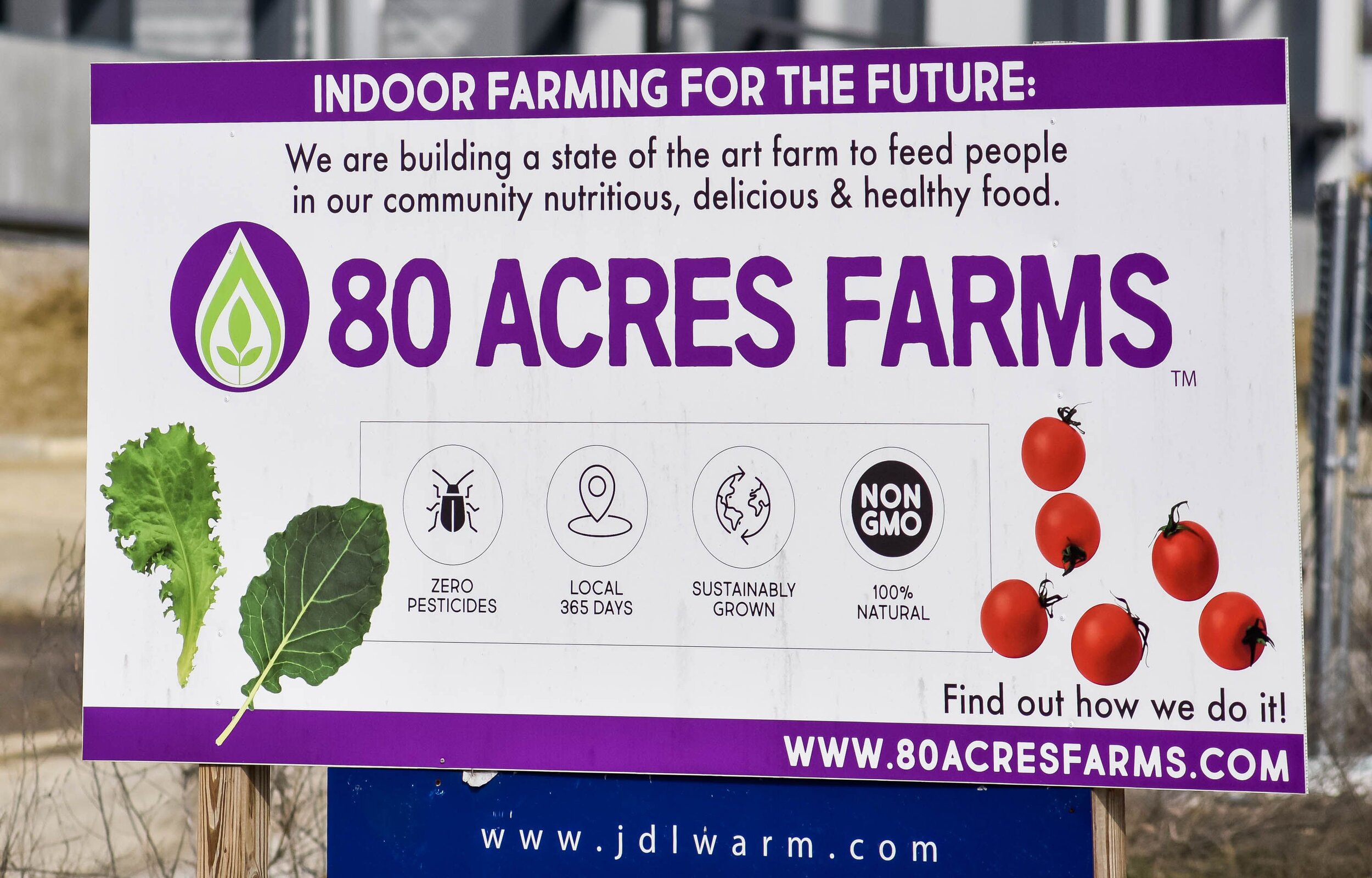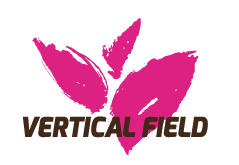
Welcome to iGrow News, Your Source for the World of Indoor Vertical Farming
USA - OHIO: ‘Amazing Accomplishment’: 80 Acres Produce Made In Hamilton Now Kosher Certified
Hamilton-based 80 Acres Farms recently received Kosher certification, and a rabbi who is part of that approval said he was astounded at how well the indoor-farming company keeps insects from its produce, even though it uses no pesticides
March 13, 2021
By Mike Rutledge
Hamilton-based 80 Acres Farms recently received Kosher certification, and a rabbi who is part of that approval said he was astounded at how well the indoor-farming company keeps insects from its produce, even though it uses no pesticides.
Credit: Journal News
“It’s an amazing, amazing accomplishment,” said Rabbi Avrohom Weinrib, administrator of Cincinnati Kosher, which now oversees about 50 establishments in Ohio, Kentucky, West Virginia and Indiana.
The not-for-profit organization soon also will be known as Central Kosher as it expands regionally. Both organizations will use the symbol of a circle around the letters CK.
With Passover starting the evening of March 27, such a designation can make preparing salads much easier for Jewish families. Vegetables and other plant products normally are Kosher. Yet a Kosher law bans eating even the tiniest of insects, Weinrib said.
“It has to be perfectly clean to be considered Kosher,” Weinrib said. “So basically, what we’re certifying — and this is the incredible process of 80 Acres — is they, through technology, got to the ability to grow things without any infestation, to the point of perfection, which is an incredible accomplishment in the world at large, but particularly an incredible breakthrough for the Kosher world.”
As part of the certification process, crops are washed in water, and that water is poured through a fine cloth that catches even the tiniest organisms. Then the cloth is checked on a light box. Then reviewers use magnifying glasses, and sometimes microscopes, “to ensure there’s nothing on there — anything like an insect,” Weinrib said.
“We’ve done about six weeks of inspections at 80 Acres to make sure that’s the case, and so far, it’s been zero,” he said. “There’s a few others in the country that have gotten to this level — very, very few — and 80 Acres is probably the best in the country in terms of this accomplishment.”
Never eaten a raspberry
Every time Weinrib’s family prepares salads or greens, “It’s going to take my wife, or one of my children, or if we pay someone to do it, to go through this exact process of washing, inspecting and almost always washing a second, or third or fourth time, until it actually gets clean,” he said.
“Because we have to make sure it’s fully clean,” Weinrib added. “So it’s time-consuming, it’s labor-intensive, and it’s something that is not an easy process.”
But when consumers see the Kosher symbol, said Kosher coordinator Rabbi Lazer Fischer, “They just open up the bag, and they can use the lettuce inside,” knowing it’s completely insect-free.
Monica Noble, who runs 80 Acres’ quality and food safety program, said the company didn’t have to change anything to earn the certification.
“Our controlled growing environment is ideal to meet Kosher requirements,” she said.
At 80 Acres, “our grow zones are enclosed and employee traffic is extremely limited, which helps us prevent pest access in the first place,” Noble said.
Kosher laws are so stringent that Weinrib has never eaten a raspberry. Fischer, who recently moved from Israel, hasn’t had one since about age 5, after intensive cleansing of those raspberries.
Other difficult-to-clean produce includes blackberries, asparagus, Brussels sprouts and sometimes strawberries.
Fischer has tasted raspberry syrups, so he has a general idea. But he hopes one day 80 Acres will have “a breakthrough” for people who have never tasted a raspberry.
Explore PHOTOS: How 80 Acres Farms has grown in Hamilton so far this year
Holiday meals
Kosher certification feels good to Samantha Bergman, 80 Acres’ senior manager of retail sales and merchandising, because of her grandfather, Harvey Bergman.
“That was something that was so important to him, honoring the Jewish tradition, and passing that down from generation to generation,” Bergman said. “I’m grateful I work somewhere that can honor this tradition for the multitude of families that hold it close to their hearts.”
Many Muslims and others also pay attention to kosher certifications.
Shakila Ahmad, with the Islamic Center of Greater Cincinnati in West Chester, said when their Halal certification isn’t on a product, many Muslims look at the Kosher certification, especially when making sure there are no traces of pork in a product.
During Passover, which runs from March 27 to April 4, which this year coincides with Easter, Jews don’t eat breads, cakes or any grain-based product. That lack of leavened food represents the fact that in escaping slavery while leaving Egypt, they had to flee quickly with no time for dough to rise into bread. Maybe someday, 80 Acres will grow romaine lettuce, which can be used as a bitter herb, representing slavery. Romaine is particularly difficult to clean, the rabbis said.
Vertical Farm Produces Kosher Certified No-Insect Produce
In a breakthrough for the kashrut market, a vertical farm company based in the Netherlands has produced and marketed culinary herbs with no need to wash or check for insects as is usually required by Jewish law
The ultra-Orthodox Machzikei Hadas kashrut authority in Antwerp has approved herbs grown in a vertical farm in Holland as ready for use without washing or checking for insects.
DECEMBER 29, 2020
The Future Crops vertical farm company has developed a system of propagating herbs in an entirely insect-free environment. (photo credit: FUTURE CROPS)
In a breakthrough for the kashrut market, a vertical farm company based in the Netherlands has produced and marketed culinary herbs with no need to wash or check for insects as is usually required by Jewish law.
Critically, the new line of herbs and their no-wash status have been approved by the ultra-Orthodox Machzikei Hadas kashrut authority in Antwerp, as well as the Star K authority, giving it strong credibility in the general kashrut market.
According to Jewish law, eating insects is strictly forbidden and those who observe kashrut must be diligent in thoroughly washing and checking lettuce, herbs, leafy greens, fruits and vegetables to ensure that they bear no insects.
But the Future Crops vertical farm company has developed a system of propagating basil, dill, coriander (cilantro), and parsley in an entirely insect-free environment.
Vertical farms are indoor, multi-level facilities that optimize plant growth in a highly controlled environment, maximizing land usage, and produce yields.
Future Crops co-founder and CEO Gary Greenspan says that its facilities are entirely sealed off from the outside environment preventing insects from entering. The earth used to grow the herbs is also specially treated to avoid the growth of insects amongst the produce, and no pesticides are used.
The produce has been marketed under Future Crops’ “Eve” brand and has been marketed in France, the UK, Belgium, and several other European countries.
Future Crops’ “Eve” brand (FUTURE CROPS).
The company says it hopes to introduce arugula, baby spinach, and romaine lettuce to its product line next year.
Rabbi Asher Sternbuch of the Machzikei Hadas Antwerp kashrut authority said the new product line and the fact that the produce does not need washing or checking represented a big breakthrough for kashrut observers.
Sternbuch said that the high level of control over the environment and the produce meant that the risk of the presence of insects was practically eliminated.
The rabbi said that Machzikei Hadas kashrut inspectors have conducted laborious inspections of numerous batches of produce and are yet to have found even one insect amongst the herbs.
Sternbuch said the development was very welcome and that it represented a big opportunity for the kashrut market.
Tags netherlands agriculture kashrut Farming
Vertical Field Changes The Kosher Produce Consumption
Today, Vertical Field announces its Star-K certification so that any company or community in cities around the world can benefit from growing and supplying its own fresh kosher greens locally and easily
Vertical Field Meets Star-K Kosher Certification
Vertical Field's customers can now benefit
from Star-K kosher certified greens
NEWS PROVIDED BY Vertical Field
TEL AVIV, Israel, April 1, 2020, / PRNewswire
Today, Vertical Field announces its Star-K certification so that any company or community in cities around the world can benefit from growing and supplying its own fresh kosher greens locally and easily. Star-K recognizes that Vertical Field's pesticide-free, soil-based urban farming operations lend themselves to producing naturally kosher products, in its highest level.
In fact, the greens are grown indoors in Vertical's Field's Urban farm, entirely free from exposure to insects, and since green agricultural produce is a naturally occurring plant that comes from the earth, they're almost fail-safe kosher after washing.
Vertical Field offers a never-been-done-before approach for supermarkets, restaurants, institutions, and hotels to take complete ownership of the supply chain by growing their own vertical living walls of delicious, naturally kosher greens — at the same time removing transportation expenses, reducing inventory costs, and ensuring year-round food supply regardless of climate or weather conditions.
CEO of Vertical Field Guy Elitzur said, "What Vertical Field offers together with the global kosher organization Star-K is the opportunity for anyone to enjoy kosher produce grown onsite at the local supermarket, restaurant, university, or company. You cannot get fresher greens if you pick it right off the wall once it's ready for harvesting. With Star-K's support and collaboration, Vertical Field is changing the way people think about kosher greens and vegetables."
President of Star-K Dr. Avrom Pollak said, "Vertical Field's revolutionary agro-technology offers the kosher consuming community a healthy, organic, pesticide-free solution for agricultural produce, ensuring peace of mind and promising quality. We are thrilled to be a part of this innovative new food supply initiative that makes kosher-eating communities' lives easy and healthy."
Vertical Field is committed to scaling the urban farm concept as well as exploring collaborations in agro-tech.
About Vertical Field
Vertical Field develops vertical indoor farming and landscaping solutions for urban environments and smart cities. The company was established in 2006, motivated to restore nature in the urban lifestyle. Vertical Field specializes in indoor and outdoor vertical plant growth solutions that improve well-being and environmental conditions in cities.
Additional Resources
Website: www.verticalfield.com
Media Contact: Natalie Ben Shaul
natalieb@verticalfield.com
SOURCE Vertical Field
https://www.verticalfield.com




